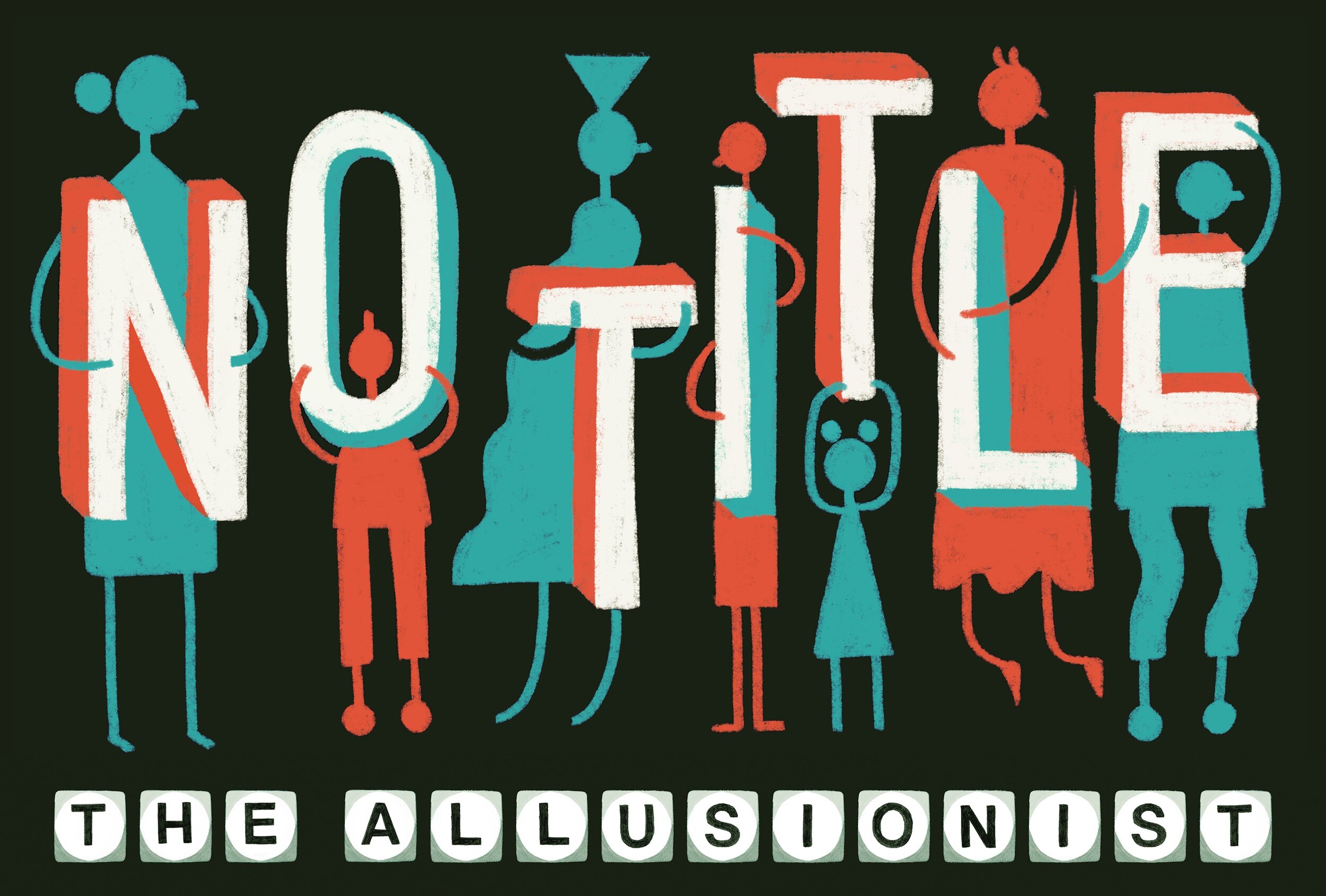In 15th and 16th century Scotland, in the highest courts of the land, you'd find esteemed poets hurling insults at each other. This was flyting, a sort of medieval equivalent of battle rap, and it was so popular at the time that the King himself wrote instructions for how to do it well. Writer and Scots language campaigner Ishbel McFarlane and historical linguist Joanna Kopaczyk explain the art of flyting, where an insult becomes slander, what's going on within the speech act of performative diss-trading, and what the legal consequences could be of being accused of witchcraft.
Read moreAllusionist 121. No Title
In 2014, a seemingly trivial and boring incident at the bank propelled me down a linguistic road via medieval werewolves, Ms Marvel and confusingly inscribed gravestones, to find out why the English language is riddled with all this gender. What’s it FOR? How did it GET there? Will it go AWAY now please? It is, at the very least, taking up brainspace and not paying any rent.
This is a recording of a live performance at the Blueberry Hill Duck Room in St Louis, Missouri on 23 November 2019, and there were visuals happening, so I’ll drop in sometimes to explain them, and I’ve also put a transcript and pictures in this post.
There are swears in this. There are also arguments that will be very useful to you if you ever come up against a denier of singular they. You will definitely win.
Read moreAllusionist 19: Architecting About Dance
iTUNES • RSS • MP3
“Talking about music is like dancing about architecture” is a problematic statement: not just because nobody can agree on who came up with it, but because dancing about architecture doesn’t seem particularly far-fetched. Talking about dance, however - that's really difficult. How do you put a wordless form of communication into words?
Audio describer Alice Sanders and choreographer Steven Hoggett take the issue for a twirl.
READING ABOUT DANCE IS LIKE READING ABOUT ARCHITECTURE:
If you want to find out more about "[doing a thing] about [a thing] is like [doing a different thing] about [another thing]" adages, take a look here and here.
Further werewolf reading-matter: find out about Old English wolf-words; read this plea for feminist werewolves/wifwolves; and this, apparently, is The Problem with Female Werewolves (too hairy for this bikini-waxed world?).
You want to learn Labanotation? Don't let me stop you.
You want to learn about the Step Up series of films? Don't let me stop you.
Steven Hoggett talks more about how he goes about his work, here and here.
Here is the transcript of this episode.
RANDOMLY SELECTED WORD FROM THE DICTIONARY:
poetaster
CREDITS:
Alice Sanders writes very funny articles and blogs. Find her at twitter.com/wernerspenguin.
Steven Hoggett is working on exciting forthcoming projects including the stage adaptation of Disney's Pinocchio, AND the Harry Potter play. You'll have to wait a little while for those; but his Burt Bacharach show, Close To You, is about to open at London's Criterion Theatre. The Curious Incident of the Dog In The Night-Time is on in the UK and on Broadway, and Once seems to be all over the place.
The non-speech noises in this episode were:
Allusionist Theme by Martin Austwick
The Nutcracker, Swan Lake and Sleeping Beauty by Tchaikovsky
A snippet of the film version of A Chorus Line
Cinderella by Prokofiev
This episode was produced by me, Helen Zaltzman. Thanks to Eleanor McDowall and Miranda Sawyer.
Dance along to facebook.com/allusionistshow, twitter.com/allusionistshow and twitter.com/helenzaltzman.




